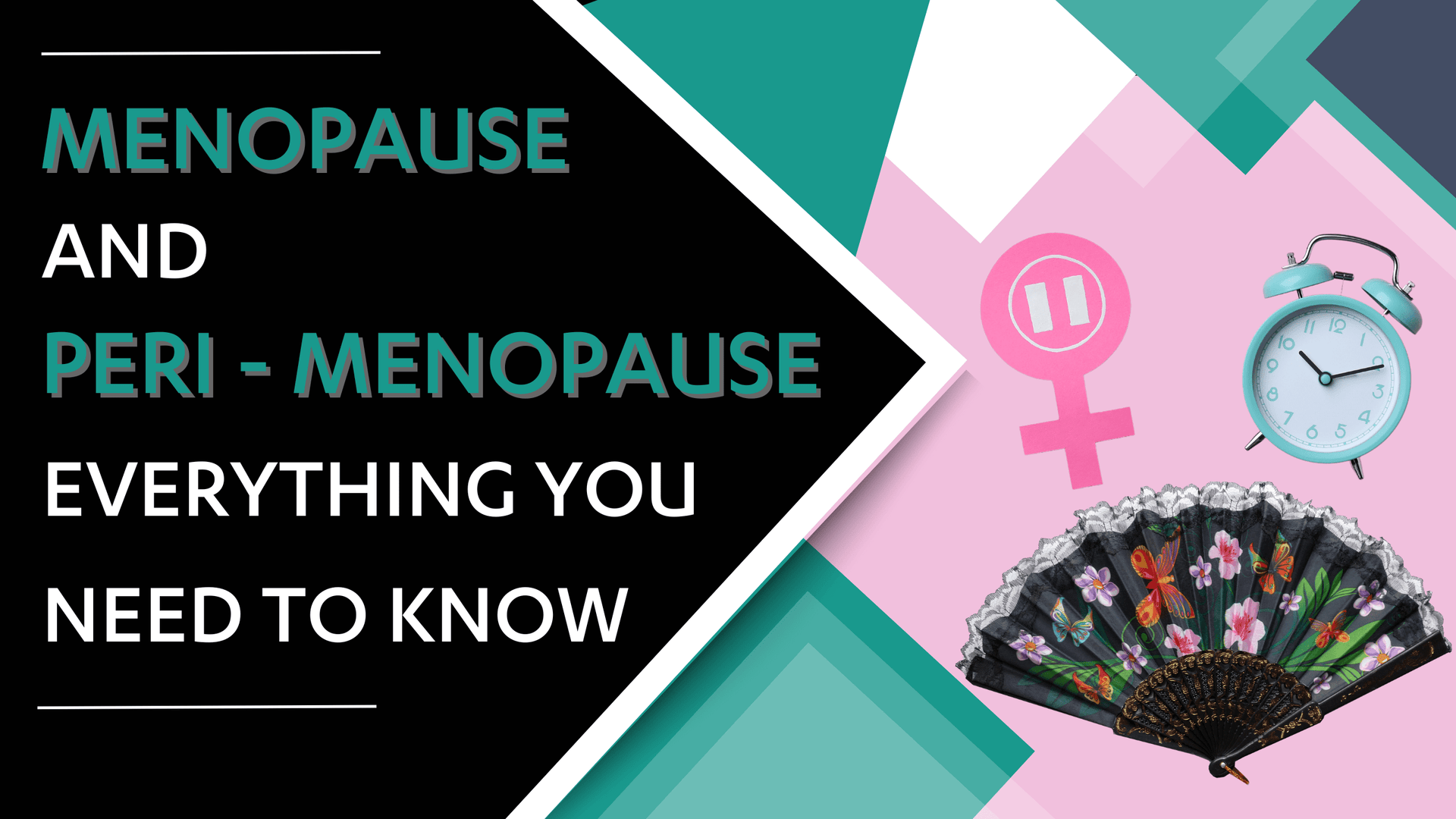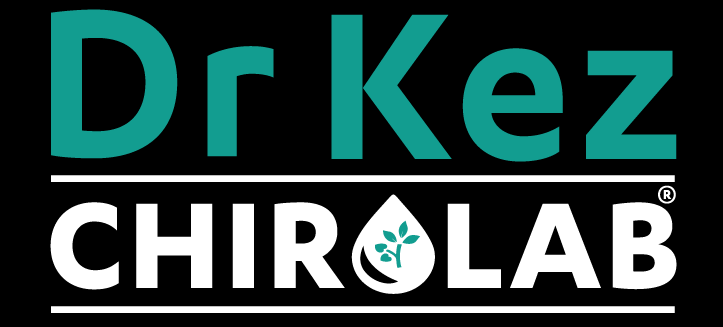
Menopause and Peri-Menopause - Everything You Need to Know!
Hormonal imbalances during peri-menopause, menopause, and post-menopause significantly affect a woman's physical and emotional well-being. These stages mark a transition from the reproductive years to a time when the ovaries cease to function, leading to various symptoms due to the decline in hormone production. This blog will explore the definitions of peri-menopause, menopause, and post-menopause, the role of the ovaries, the impact of low oestrogen, and the critical functions oestrogen plays beyond reproduction. Best of all we will provide you with a natural solution that can help take over the function of the ovaries in keeping our body well stocked with oestrogen so that we can eradicate these horrible menopausal symptoms that so many women suffer with.
How do I know if I'm in Menopause?
Let's define the different stages that represent a woman's transition out of her reproductive years and into menopause?

This phase precedes menopause and is characterised by fluctuating hormone levels, leading to irregular menstrual cycles and various symptoms such as hot flashes, night sweats, and mood swings. It typically begins in a woman's 40s but can start earlier. Rather than the ovaries having a definitive expiry date, it’s best to think about them as having a best before date. The ovaries don’t suddenly stop producing oestrogen, their function gradually deteriorates giving intermittent symptoms.

Menopause is officially diagnosed when a woman has gone 12 consecutive months without a menstrual period. This stage signifies the end of the ovaries' reproductive function and a significant decline in oestrogen and progesterone production. The average age for menopause is around 51. Menopause is merely a definitive date in time. Immediately after you’ve gone 12 months without a period, you have technically reached post-menopause.

Wait! There's a post-menopause too? This phase follows menopause and lasts for the remainder of a woman's life. During post-menopause, symptoms such as hot flashes and night sweats may continue, but the primary concern shifts to long-term health issues related to low oestrogen levels, such as osteoporosis and cardiovascular disease.
The Role of the Ovaries

The ovaries, two small almond-shaped glands located on either side of the uterus, play a crucial role in a woman's reproductive system. They produce eggs and secrete the hormones oestrogen and progesterone, which regulate the menstrual cycle and support pregnancy. However, the ovaries have an "expiry date" and gradually lose their ability to produce these hormones, leading to menopause.
As the ovaries' function declines, the production of oestrogen decreases significantly. While the adrenal cortex can produce a small amount of oestrogen, it is often insufficient to meet the body's needs, especially in women who have been on synthetic hormones such as oral contraceptives, IUDs (like Mirena), or hormonal implants (like Implanon). These synthetic hormones can cause oestrogen resistance, making it even more challenging for the body to utilise the limited oestrogen produced post-menopause.
Symptoms of Low Oestrogen
The decline in oestrogen levels during peri-menopause, menopause, and post-menopause leads to a variety of symptoms, including:

Hot Flashes and Night Sweats:
Sudden feelings of warmth, often accompanied by sweating and redness, are common. Night sweats can disrupt sleep, leading to insomnia and fatigue (let alone a wet bed!).
Vaginal Dryness and Urinary Symptoms:
Oestrogen helps maintain the mucosal lining of the vagina and urinary tract. Low levels can cause vaginal dryness and discomfort during intercourse.

Urinary Symptoms:
Likewise, the mucosal lining of the urinary system is frequently affected by a drop in oestrogen, leading to incontinence, urgent urination, needing to urinate overnight (nocturia), frequent need to urinate and an increased risk of urinary tract infections (UTIs).
Mood Swings and Depression:
Hormonal imbalances can affect neurotransmitter levels, leading to mood swings, irritability, and depression.

Cognitive Changes:
Some women experience difficulty concentrating, memory lapses, and other cognitive changes.
Bone Health:
Oestrogen plays a vital role in maintaining bone density. Low oestrogen levels can lead to osteoporosis, increasing the risk of fractures.
Skin and Hair Changes: Oestrogen helps maintain skin elasticity and hydration. Reduced levels can lead to dry, thinning skin, and hair loss.
The Hypothalamus and Menopause Symptoms

The hypothalamus, a small but critical part of the brain, regulates many essential functions, including body temperature, sleep, mood, and hunger. It works closely with the pituitary gland to control the release of hormones from various glands, including the ovaries.
During menopause, the decline in oestrogen affects the hypothalamus, leading to many of the common symptoms experienced during this stage. For example:

Hot Flashes and Night Sweats:
The hypothalamus helps regulate body temperature. Low oestrogen levels can disrupt this function, resulting in a narrower thermostatic range. This means it takes only a slighter change in temperature to set off a sweat response causing sudden heat surges and sweating.
Insomnia:

The hypothalamus also regulates sleep patterns. Hormonal changes can lead to difficulties falling and staying asleep, contributing to insomnia and fatigue.
Mood Swings and Cognitive Changes:
The hypothalamus is involved in mood regulation. Oestrogen influences neurotransmitter activity, and its decline can lead to mood swings, anxiety, and cognitive issues.
Hunger and Thirst Response:

Oestrogen serves to dampen appetite so as it declines our appetite increases.
Decreased Libido:
Oestrogen also plays a vital role in giving us the desire to be intimate. Decreased levels result in a low sexual desire.
Oestrogen and Mucosal Health

Oestrogen plays a crucial role in maintaining the health of mucosal tissues in the body, particularly in the vaginal and urinary areas. It helps keep the vaginal lining thick, elastic, and lubricated. When oestrogen levels drop, women may experience vaginal dryness, itching, and discomfort during intercourse. Additionally, the thinning of the urinary tract lining can lead to urinary urgency, frequency, nocturia (night time urinating), incontinence and an increase in the risk of UTIs and urinary incontinence.
Oestrogen and Bone Health

Bone density is largely dependent on oestrogen, which promotes the activity of osteoblasts, the cells responsible for bone formation. During menopause, the decline in oestrogen leads to an imbalance between bone resorption (breakdown) and bone formation, resulting in a decrease in bone density and an increased risk of osteoporosis. This condition makes bones more fragile and susceptible to fractures.
Oestrogen and Muscle Health

Oestrogen also influences muscle mass and strength. It helps maintain muscle protein synthesis, and its decline can lead to a decrease in muscle mass and strength, contributing to the overall feeling of weakness and increased risk of falls and injuries in post-menopausal women. Our muscular health is also then linked back to bone health, as the more demand the muscles place on the bones, the more bone the body lays down.
Oestrogen and Skin Health

Skin health is another area significantly affected by oestrogen levels. Oestrogen helps maintain skin thickness, elasticity, and hydration by promoting collagen production. A decline in oestrogen can lead to thinner, less elastic, and drier skin, making it more prone to wrinkles and injuries. Additionally, oestrogen influences the function of sebaceous glands, which produce the skin's natural oils. Reduced oestrogen levels can lead to dry and itchy skin.
Other Functions of Oestrogen Post-Reproductive Years
Beyond reproduction, oestrogen continues to play several essential roles in the body, including:
Cardiovascular Health:

Oestrogen helps maintain the elasticity of blood vessels and has a protective effect against the development of cardiovascular diseases. Its decline can increase the risk of hypertension, atherosclerosis, and heart disease. The impact of low oestrogen levels on the hypothalamus, also affects blood pressure, another contributor of poor heart health.
Cognitive Function:

Oestrogen has neuro-protective properties, supporting brain health and function. It influences the production of neurotransmitters like serotonin and dopamine, which are essential for mood regulation and cognitive function. Low oestrogen levels can contribute to memory lapses and an increased risk of neurodegenerative diseases.
Metabolic Health:

Oestrogen affects metabolism and fat distribution in the body. Its decline can lead to changes in body composition, such as increased abdominal fat, which is associated with a higher risk of metabolic syndrome and type 2 diabetes. For more information on fat distribution and menopause, read BLOG…
Joint Health:

Our joints have oestrogen receptors. Oestrogen also has anti-inflammatory properties and helps maintain joint health. Low levels can contribute to joint pain and stiffness, often reported by post-menopausal women. Although joints can naturally deteriorate with age, this process is rapidly accelerated by a lack of oestrogen, certainly something to address before creaking and cracking your way into retirement.

What can be done about it?
It all sounds so doom and gloom, but don’t fear there’s always a happy ending right!? Dr Kez has put her 20 years of experience and deep understanding of the human body together and has developed a product to negate these horrible menopausal symptoms. With a passion for all things natural, we have included 100% natural active ingredients that support oestrogen production in the body. All active ingredients have been selected for their hormone balancing properties, so that your body can take what it needs to continue to function optimally. Simply rub Hormotion™Lotion on the inside of your thighs, arms or on your decolletage area (chest and neck area), twice per day to provide adequate volumes of phytoestrogen for the body to use.
The hormonal imbalances experienced during peri-menopause, menopause, and post-menopause have far-reaching effects on a woman's health. Understanding the critical roles oestrogen plays beyond reproduction highlights the importance of addressing these imbalances to maintain overall well-being. From regulating body temperature and sleep to preserving bone density and skin health, oestrogen's influence is vast and significant. As the ovaries cease production of this essential hormone, women may experience a range of symptoms that impact their quality of life. Awareness and proactive management by using a natural hormone replacement can help women navigate this transition more comfortably and maintain their health and vitality in the post-menopausal years.







